In the realm of workplace drug testing, multiple factors come into play, shaped by numerous statutes, regulations, laboratory licensing requirements, and case law decisions. While not every state or territory possesses a specific drug testing law, virtually all states and territories incorporate drug testing language within their workers' and unemployment compensation regulations. Additionally, many states harbor case law, influencing the intricacies of when and how workplace drug testing is conducted.
The significance of comprehending drug testing laws cannot be overstated, as each employer's understanding may differ. In this dynamic landscape, an employer must remain fully aware of how state laws directly impact their drug-free workplace program. The intricacies may vary, but the imperative to navigate and grasp these complexities remains constant. Being well-informed empowers employers to establish a robust and legally compliant drug testing program.
The National Safety Council estimated that the cost of substance use disorders to employers was $81 billion per year. This cost includes lost productivity, absenteeism, and healthcare costs. In addition, employees with substance use disorders are more likely to file workers' compensation claims, leading to higher insurance costs for employers.
As a drug testing service provider, our laboratories are licensed and certified to conduct drug testing for employers. Our patient service centers have qualified personnel trained to collect specimens, and our customer service representatives can address various inquiries. Additionally, we collaborate with valued partners who specialize in policy development, supervisor training, and addressing state law and federal regulatory matters when needed.
Workers' Compensation and Post-Accident Drug Positivity
As more workers test positive for drugs, there is a potential risk of having drug-impaired individuals on the job, compromising workplace safety and increasing accidents. The Drug Testing Index (DTI) shows a significant increase in overall urine drug testing post-accident positivity in the general US workforce over the past five years. Over the last five years in general U.S. workforce urine drug testing, pre-employment positivity increased 17.4% (4.6% in 2017 versus 5.4% in 2021); while post-accident positivity increased 26% (7.7% in 2017 versus 9.7% in 2021).
Post-accident urine positivity for marijuana and cocaine showed a considerable rise of 58.7% and 230%, respectively, in the general US workforce compared to pre-employment tests. The federally mandated safety-sensitive population also experienced an increase in post-accident urine positivity for marijuana, with a 16.7% year-over-year rise and a 40% increase over five years. Increased drug testing can help you stay safe.
The correlation between post-accident positivity rates and workers' compensation law is evident. Each state has its own workers' compensation regulations, with many referencing the right of employers to deny or reduce payable benefits if an injured worker was intoxicated or under the influence of drugs during the accident. Some states even incorporate specific drug testing requirements into their workers' comp laws.
Navigating Unemployment Compensation Law
Most states have an unemployment compensation law. Much like workers’ compensation benefits, some states have specific drug and alcohol testing conditions included in the unemployment compensation law for employers to successfully challenge a claim.
Navigating State Government Regulations in Drug Testing
Apart from state laws, there are state government regulations that directly influence drug testing. Different local government agencies may have jurisdiction over specific aspects, like a state department of health overseeing laboratory licensing.
These regulations can impose requirements on laboratories or directly on employers utilizing them for drug testing. Due to the various state agencies involved, it's essential to familiarize oneself with all applicable requirements to ensure compliance. Let Workplace Safety Screenings consult you on how to navigate you on how to navigate state regulations and ensure you are compliant in your drug testing practices. We’ll do the work for you. Treating employees fairly requires a careful and customized approach to drug testing solutions.
Let Workplace Safety Screenings consult you on how to navigate state regulations and ensure you are compliant in your drug testing practices. We’ll do the work for you.

.png?width=500&height=500&name=Blue%20and%20White%20Classic%20Shield%20Financial%20with%20Star%20Logo%20Design%20(1).png)


